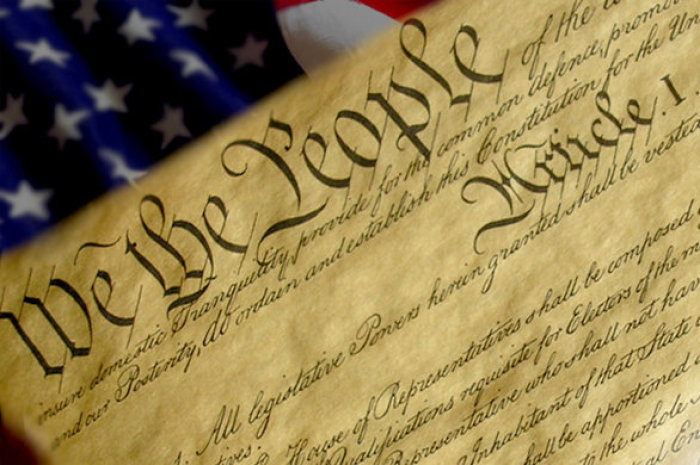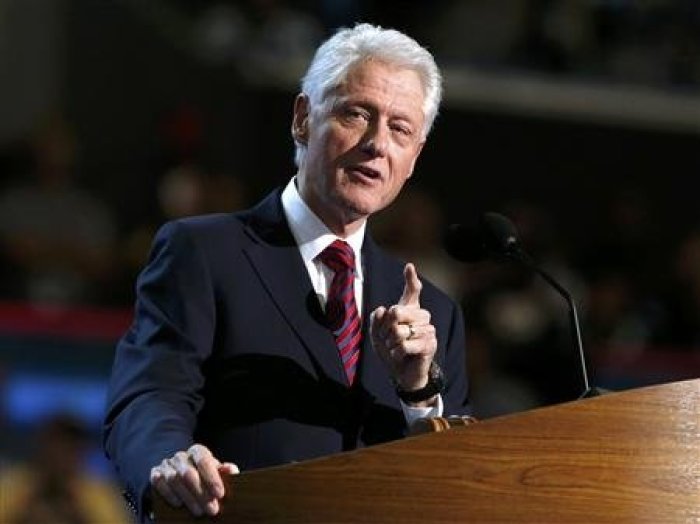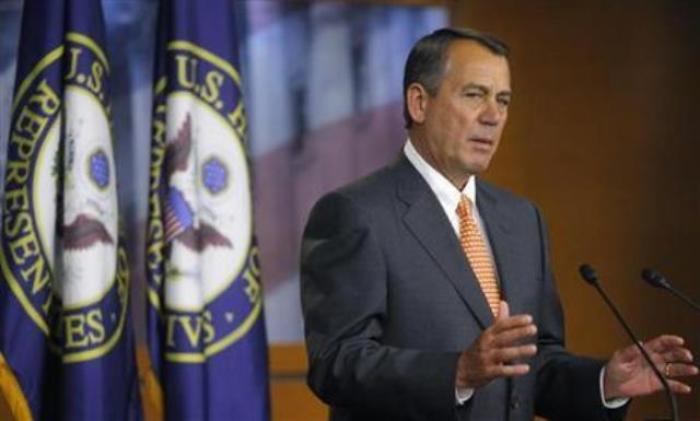7 Surprising Congressional Efforts With More Bipartisan Support Than Obamacare
Of the many pieces of recent federal legislation, few elicit as much emotion and controversy as the Patient Protection and Affordable Care Act. Commonly known as "Obamacare," the bill became law in March 2010 and has been the subject of scores of bills and lawsuits meant to bring it down.
In contrast to many bills out there, Obamacare succeeded with little bipartisan support. The initial H.R.3590 bill had 40 cosponsors, of whom only three (Reps. Walter B. Jones, Jr. of North Carolina, Ginny Brown-Waite of Florida, and Russell Todd Platts of Pennsylvania) were Republican.
During the much covered House votes on Nov. 7, 2009 and March 21, 2010, only one Republican voted in favor of either bill. For the Nov. 7 vote, 39 Democrats joined House Republicans in voting against it and on March 21, 34 Dems did likewise. This means that opposition to the sweeping health care overhaul was more bipartisan than its support.
This makes one wonder: what other Congressional efforts have garnered more bipartisan support than the Affordable Care Act? Plenty. But there are some bills and laws whose support one might not expect to have garnered greater bipartisan support.
Below, in no particular order, are some pieces of relatively recent Congressional efforts, proposed and/or passed, that strangely enough have garnered more agreement between Ds and Rs than the Affordable Care Act.
1. Efforts to Repeal the 22nd Amendment (1990s to the present)

Since the 1990s, there have been several efforts by Congressmen from both parties and varying ideological shades to repeal the Amendment limiting the President of the United States to two terms.
Those who have supported such an effort have included a range going from liberal Democrat Congressman Barney Frank of Massachusetts to conservative Republican Sen. Mitch McConnell of Kentucky.
In all, over 20 attempts have been made by members of Congress from both parties to repeal the Amendment since the Clinton Administration. The most recent was introduced by Democrat Jose E. Serrano of New York.
2. The Defense of Marriage Act (1996)

Amid the Democratic Party placing a pro-same-sex marriage plank in their 2012 platform and the Republicans doing the opposite, it may be forgotten that there was a time when the two parties agreed on the issue of marriage definition. In 1996, both Houses of Congress overwhelmingly approved the now controversial Defense of Marriage Act with Democrat President Bill Clinton signing it into law.
The initial House bill garnered 117 cosponsors, which broke down to 103 Republicans, 10 Democrats, and 1 Democrat-turned-Republican. The House vote involved 219 Republicans and 120 Democrats voting yes, with one Republican, one Independent, and 65 Democrats voting no.
3. The Patriot Act (2001)

Officially known as H.R.3162 and introduced by Republican Rep. Jim Sensenbrenner, the Patriot Act garnered immense controversy over its alleged violations of civil liberties. While much criticized by civil rights organizations and the subject of harsh political rhetoric, the vote taken on the Act looked far less divisive.
For the 2001 version of the Act, 98 US Senators representing both parties voted in favor of the legislation. At the House level, 211 Republicans, 145 Democrats, and 1 Independent voted yea.
4. Changing the name of the Navy Department (2013)

At present, a bill is being considered to change the name of the Department of the Navy to the Department of the Navy and the Marine Corps. The bill, H.R. 124, has 33 cosponsors composed of 19 Democrats and 14 Republicans.
5. Authorization for the Iraq War (2002)

Years before military intervention in Libya or Syria would be hotly debated by activists and politicians in the United States, Iraq was the subject of argument. After Saddam Hussein was overthrown and the occupation began, the war became a partisan issue as many argued that the Administration had lied about weapons of mass destruction, the key justification for the war.
Nevertheless, what was a fierce political debate later on initially garnered overwhelming support from Democrat and Republican alike. In the Senate, H.J. Resolution 114 had 29 Democrats and 48 Republicans vote for it. Among those voting yes included then Democratic Senator John Kerry, who would later run on a presidential campaign platform in opposition to the war.
6. Clinton Impeachment Inquiry (1998)

The effort to look into the much publicized sex scandal of President Bill Clinton was often argued as being a partisan witch hunt. Nevertheless, when brought to a vote in the House of Representatives more Democrats crossed the divide to vote in favor of it than Republicans for the Affordable Care Act.
In total, 228 Republicans and 31 Democrats voted yea to holding an impeachment inquiry against President Clinton, making him the third commander-in-chief to undergo such an investigation.
7. IRS Off Your Health Care Act of 2013

Since the Affordable Care Act was passed in 2010 sans House Republican votes, the GOP-led lower House has passed several bills aimed at defunding or repealing part or all of Obamacare.
A recent one, geared towards blocking the Internal Revenue Service from enforcing or implementing any portion of the ACA, passed in August by a vote of 232 to 185. While largely on party line, the 40th effort to repeal Obamacare got the support of four Democrats: Reps. John Barrow of Georgia, Jim Matheson of Utah, Mike McIntyre of North Carolina and Collin Peterson of Minnesota.





























